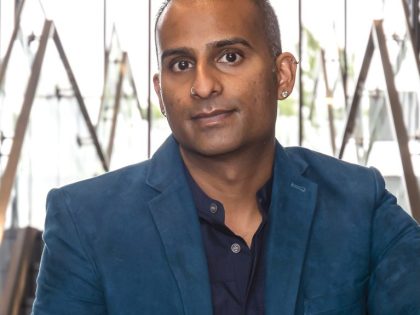
Rethinking the boundaries of blackness
South Africa’s visual culture reveals that its racial categories were never fixed, while the history of indenture complicates the terms of solidarity and exclusion.

South Africa’s visual culture reveals that its racial categories were never fixed, while the history of indenture complicates the terms of solidarity and exclusion.

In echoing the anti-trans panic sweeping the Global North, South African political heavyweight Helen Zille joins a reactionary tradition of racialized sex policing.

From trans bans to racial exclusion, the hard-won gains made in women’s football are being rolled back under the guise of protecting women.

Anti-queer laws in Africa are often framed as cultural defense—but their roots lie in colonial legacies, religious nationalism, and global reactionary alliances.

As political discontent rises in Kenya, silencing women’s and queer rights in the pursuit of economic justice risks compromising the movement entirely.

Homophobia doesn’t start with violence—it begins with silence, erasure, and everyday destruction. But straight people only seem to notice when it’s too late.

Removed from the facts, the firestorm around Algerian boxer Imane Khelif is the latest attempt by the right-wing in the West to find fodder for its culture war.

A solidariedade socialista na Angola e Moçambique pós-coloniais tornou as pessoas queer invisíveis. Revisitar esse apagamento nos ajuda a reinventar a libertação de forma legítima.

Socialist solidarity in postcolonial Angola and Mozambique rendered queer people invisible. Revisiting this erasure helps us imagine liberation anew.

La Côte d’Ivoire peut-elle devenir un havre de paix pour les communautés LGBTQI+ en Afrique de l’Ouest?

Could Côte d’Ivoire one day become a safe haven for LGBTQI+ communities in West Africa?

Telling one's story as a black queer person isn't yet the luxury it is chalked out to be, especially when it remains dangerous to be queer in the world.

Although visibility is important, contemporary queer African literature reveals how easily representation privileges narratives of the resourceful and upwardly mobile.

How does it feel to be gay in an environment where homophobia is mundane and rampant, and where gays are silenced, ridiculed, and assaulted in everyday life?

Kayo Chingonyi's latest poetry collection is a powerful meditation on the cycle of infection, death, and mourning wrought by HIV.

Queer Indians are largely invisible in South Africa's LGBT discourse. But representation is not enough, we need political transformation and multi-racial class solidarity.

In the second of five articles on Afrobeat music in South America, political scientist Simon Akindes writes about the all women and nonbinary Brazilian band, Funmilayo Afrobeat Orquestra.

Director Shameela Seedat’s film about trainee lawyers provides a sort of celebration of youth on this continent and a vision of the next generation of Africans.

A new book presents an empirical challenge to the myth of South Africa as the “pink capital” of Africa and contributes to building an archive of queer, African, and religious narratives.

Lindsey Green-Simms’ book "Queer African Cinemas" explores the intersections of postcolonial thought, queer theory, and screen media.